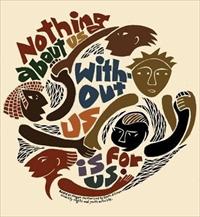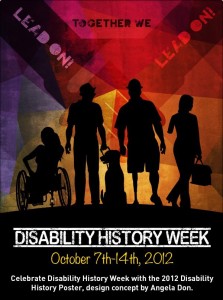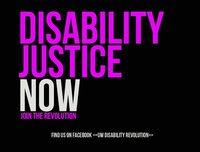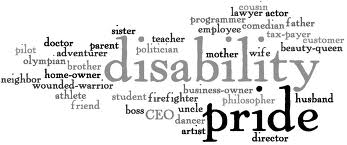We Disabled Folk Have Everything to Offer the World — Except Normalcy
I have been feeling a lot of sadness these days. It’s almost a sad kind of wonder. I look back over my life from my perch here in my 50s, and I think about how differently my life has turned out from what others had planned for me — and from what I had planned for myself.
Part of what has sparked this nostalgia has been reconnecting with an old friend from high school. I find myself traveling back to when we last saw each other. We were 18. It’s been over 35 years — a whole lifetime. And I wonder at how young we were, how unformed we were, how we were barely out of childhood, and how we have aged and weathered so many things in the interim.
But mainly, I think about the difference between who I am now and who I was then. In some ways, I am still that innocent kid, with the Mensa-level IQ, and the acceptance letters from Ivy League schools, and the faith that my intelligence and my good heart would open doors and make my life the privileged haven everyone told me it would be.
Because yes, I grew up very privileged. White and solidly middle-class, I had the best of everything: the best schools, the best arts programs, the best neighborhood, and the best and highest of expectations. Home was a nightmare, but it was a nightmare that I knew would one day be over. I was not trapped in it. I had choices. I had a plan. I had an escape.
But I didn’t have as many choices as I thought I did. I didn’t use the word “disabled” back then, but even in high school, I knew that people could do things that I couldn’t do — and I knew that I understood things they could not see. I didn’t know how to define it. I didn’t understand all the neurological glitches and processing difficulties and unfiltered perception that made my life so much more work than I was perceiving in other people. But even in high school, I knew that my life would not be what I had planned, nor what my parents were planning. I knew there were worlds I could not navigate and had no interest in navigating. I knew that I was going in a different direction. I cried all the time.
Realizing that I have multiple disabilities here in the middle of my life has really been about a loss of privilege. I’ve been angry about it, and I’ve grieved it, but mainly, I think about how incredibly privileged I am to be grieving the loss of privilege. What does it say that I have had to adjust to what most people deal with in utero? I have railed against the loss of privilege with all manner of words that come down to Why Me? I only started moving on with my life when I could answer with Oh, for God’s sake. Why Not Me?
I still have so much privilege. I live in a great apartment in a secure building. I don’t worry about food or clothing or medicine. I have my husband with me and my kid less than a mile away.
And yet… What is it about being disabled that always brings up the words and yet?
Part of it is a lack of access. I was abundantly fortunate to have had a very good career for fifteen years. And then I left it to raise my kid, and by the time I was done, my disabilities were in full bloom, the time for passing had long since passed, and I could not find an accessible environment in which to work. I miss that. I miss the daily collaboration of work. I miss the routine. I miss the projects and the work friendships and the busyness of it. I miss the old identity. I miss the social respect.
But it isn’t just about access. Not exactly. It’s more a sense that the world wants something I can’t give it, no matter how hard I’ve tried. It’s not enough that I’m smart and good-hearted and hard working. The world wants me to be normal. That is the baseline. That is the condition under which everything else takes place. And I simply can’t do it. I never could do it. I tried very hard. And for awhile, I was able to compensate. But I’m not interested in compensating anymore. I’m interested in living comfortably in my body. That just isn’t possible when you’re compensating all the time.
So that kid, who thinks that her brilliance and lovingkindness are going to be just the ticket, is still very much a part of me. She’s still looking around, wondering why it doesn’t quite work that way. But there is also the adult, who knows that the gig was up a long time ago, and that it doesn’t matter how many of the trappings of normalcy I’ve acquired. I’m not normal. I will never be normal. I don’t ever want to be normal. Why would I want to aspire to a statistical construct created by 19th century eugenicists? Does that sound like a fun way to live?
I have so much to offer the world. And yet, I can’t give it what it wants more than anything: normalcy. So I seek out people who don’t care about normalcy. I serve people who don’t care about normalcy. I serve people in the park who are hungry and homeless — many of whom are disabled, and all of whom are way further to the right of the bell curve on non-normalcy than I am. I think that is one of the many things I love about what I do three days a week: I distribute lunch to people who don’t expect me to be normal, who aren’t judging how far I fall from it, and who really couldn’t care less whether I fulfill the ridiculous expectations of some fictional idea.
So, oddly enough, and despite the undeniable privilege I still enjoy, I have found a source of connection among the most dispossessed people in my community. I work to make my privilege work for them. I do my best to take my privilege and wield it for the sake of people who are about as far from privilege as one can get. Right now, that’s the best I can do.
© 2013 by Rachel Cohen-Rottenberg









7 comments already | Leave your own comment
julesinrose
10/10/2013 | 3:47 pm Permalink
Yes. Exactly.
Jesse the K
10/11/2013 | 7:19 am Permalink
This speaks directly to a part of me I didn’t know was listening. Thank you.
Mary-Jane Kohler
10/11/2013 | 9:40 pm Permalink
As a disabled person, I enjoyed reading your post. Maybe you’ll enjoy reading this also:
http://monthlyreview.org/2004/03/01/the-right-not-to-work-power-and-disability
Nancy Nordyke Shelley
10/12/2013 | 10:31 am Permalink
Boy! Did you “hit the nail on the head” with me in your blog! You described my own experience “to a t”, although some of the particulars are unique, the similarities are incredible.
First, let me thank you for your words. I needed to hear them right now. The sharing is essential to create the tender threads of human connection alive. Before I forget, I want to encourage you to read IN THE LAYERS, by Stanley Kunitz. It is a wonderful poem apropo this experience, I think.
Second, I always think, ” now what.”. For me, I would love to begin by connecting on Facebook at least. I am Nancy Nordyke Shelley. If this has value for you, send me a friend request, please. As a caveat, I will warn you ahead that I post a good deal of political material. It is my passion these days. I am feminist, progressive, pro education, healthcare, prison reform, criminal justice reform, and more. I am currently teaching computer classes for The Adult Literavy League. I work at my local court house helping women get orders of protection for domestic violence, and I will be active in voter registration efforts for the mid term elections coming up soon( live in Florida).
I hope to hear from you again, but if not, I thank you again for your words. You made my day!
Nancy Nordyke Shelley
10/12/2013 | 10:50 am Permalink
Just looked you up in Facenook…..another connection….my grandson Jared is autistic and, unfortunately, profoundly disabled. His struggle, and that of his nuclear family living in Utah, is one that has
transformed all of our lives in unexpected and surprising ways.
Sophiestrains
10/24/2013 | 1:57 pm Permalink
I can relate so much to what you are saying here. As a mom with Asperger’s I too, fall outside of “normal”. I kind of now where “normal” is but to get there I have to put up with anxiety and dicomfort. I have made a balance between visiting “normal” and refuelling “me”. I look forward to coming back here and reading more – I found you through the blog hop.
Trackbacks & Pingbacks
[…] We Disabled Folk Have Everything to Offer the World — Except Normalcy […]